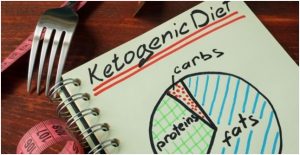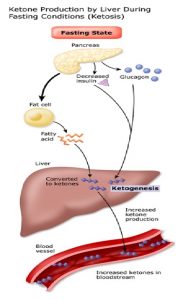What for, should I go in for a ketogenic diet? Has this, question ever crossed your mind?
You’re not foolish, infant you’re smart and it is true that you can’t be lured into liking and then embracing anything be it a product or service, likewise any diet plan, when it isn’t backed by a plethora of advantages that it may bring to you.
You are at an impressive advantage, if you’re considering the ‘Keto diet’ to be you’re saviour! We will explain to you, precisely that its not just a hype, but science bears testimony to the huge number of positive effects it may have on your health.
A ‘Keto diet’ triggers ketosis in our bodies, switching from glucose to fats as the chief source of energy. It is diet that involves high amounts of fat, moderate protein and very little or no carbs.

Let’s delve into what benefits, such a diet can bring to you.
Not bragging about, it even in the least, we will put forth the real picture.
- First of all, the most obvious and most coveted benefit that it brings about is WEIGHT LOSS!
Studies show that people on low-carb diets lose more weight and much faster than people on low-fat diets even though they might restrict calories.
This reduction in carbohydrate forces the body to uses its fat storage to create the energy it needs to function. And this will not be simple weight loss! The icing on the cake is that, maximum weight loss will be from you abdomen. Ketosis will improve your waistline.
You may read more about it.
- Apetite Suppression
If you’ve tried dieting, and failed it is but obvious that you might have fallen prey to your hunger pangs! Any dieting whatsoever that fail to keep you fulll, actually fails to give you good results. The best thing about a ketogenic diet is that, it helps to suppress hunger in good way.
You can very well understand that a high fat and protein diet, tends to last longer in terms of energy and satiety. Research also shows this.
Find answers to all your queries and right guidance for your Keto journey.
- Anti ageing
Life span is increased when oxidative stress is lowered. It seems that by lowering insulin levels, oxidative stress in turn is decreased. A ketogenic diet decreases insulin levels – allowing the formation of ketones to be used as fuel.
Many experts are turning to ketogenic diets in a quest to slow down aging
By way of instance, burning sugar for fuel generates more reactive oxygen species. These reactive oxygen species cause damage, inflammation, and cell death when they collect. This is the reason why consuming too much sugar is known to impair brain function and lead to plaque build up in the brain.
On the other hand, ketones offer a more efficient energy supply and help protect neuron cells in the brain. This is partially because burning ketones for fuel decreases the production of reactive oxygen species and enhances mitochondrial function and generation.
- Brain function
Your brain will work better in general when burning fat as opposed to sugar, as fat was shown to be equally neurotherapeutic and neuroprotective. While fats are unable to cross the blood brain barrier, ketones, being fat-soluble fats, can cross it and feed your mind. Many times, enhanced cognition and mental acuity are one of the first things people notice when entering nutrient ketosis. Anecdotes certainly suggest that otherwise healthy individuals are able to experience cognitive advantages from brain usage of ketones.
There is ample of anecdotal evidence that shows, healthy people can experience cognitive benefits from brain utilization of ketones.
Despite high glucose availability, the aging, epileptic, Alzheimer’s, or Parkinson’s brain can’t utilize enough of it to handle cognition. Ketones provide a vital and alternative source of energy for the glucose-starved brains. It’s no coincidence that ketogenic diets can improve symptoms (and in some cases abolish them) and cognitive function in all four conditions.
- Longevity:
Ketones are longevity metabolites.
Several studies, have proven this. One study showed that elevated ketone levels extended life span by 26% in worms, and the other showed that ketones corrected the metabolic defects in a mouse model of accelerated aging.
- Lowered blood pressure
If you eat more carbohydrate than required, which is primarily true for high-glycemic carbohydrates which are quickly digested, such as white bread and pure sugar. So, Based on how sensitive you are, you may be experiencing the exact symptoms from more complicated, lower GI carbohydrates.
Carbohydrate begins getting broken down to simple sugars when it arrives on your stomach (by way of example, starch in bread and wheat becomes sugar) which raises your blood glucose the minute it’s taken up by the blood. The body then produces more of the hormone insulin, so as to care for this blood sugar.
Raised insulin levels seem to lead to the accumulation of fluid and salt in the body. This increases blood pressure.
- Helping the eyes (more stable vision; less risk for cataracts)
As any diabetic will tell you, it’s well known that high blood glucose has a detrimental effect on vision and contributes to an increased risk for cataracts. It is therefore not surprising that maintaining blood glucose levels low improves vision and eye health, as a gazillion people have shared online, and as associated diabetes research has proven.
- Women’s health
The Keto Diet, or Ketogenic Diet, can be undertaken by both men and women. This diet relies on a high intake of protein and fat such as meat, seafood, olive oil, eggs and small amounts of vegetables.
Women can experience a number of health benefits with this diet including hormonal balance, weight loss and even an anti-aging effect. A multivitamin and mineral should be taken to supplement the Ketogenic Diet.
As a woman, you might benefit from a ketogenic diet if you:
- have PCOS
- have irregular or absent periods
- have imbalanced thyroid hormones
- can’t lose or gain weight no matter what you try
- have terrible PMS
- have adrenal fatigue
- feel tired or unmotivated
- get hungry and need to always have a snack handy in between meals
- want to increase your performance in the gym
- have an autoimmune disease you would like to manage
- Decreasing inflammation
A ketogenic diet decreases insulin levels – allowing the formation of ketones to be used as fuel. Whereas, burning sugar for fuel creates more reactive oxygen species. These reactive oxygen species cause damage, inflammation, and cell death when they accumulate.
So, following a strict low carb/keto diet causes reduction and relief in inflammation.
- Improved sleep and energy levels
Once your body gets adapted to ketosis, and you overcome the initial phase where you feel low, a new burst of energy and enhanced mental clarity and focus sets in.
This happens because, insulin levels are low and ketones are a better and cleaner fuel for the body. The body wins the battle against carb cravings and utilisation of fat as fuel produces more energy.
Having less reactive oxygen species increases energy efficiency, because of better mitochondrial function.
Better brain function, leads to better sleep cycles too.
That’s not the end. The trail still continues…
There are many other advantages that a keto diet may bring about. Keep reading to find out, that which are specific conditions where this diet provides cure and relief.
Editor’s note: – If you are interested in ketosis, and following ketogenic diet plans, we recommend two very useful resources – Perfect Keto, a natural supplement to get you into the state of Ketosis as quickly and effectively as possible, and The Essential Keto Cookbook, a great way to kickstart your Keto journey.
THERAPEUTIC BENEFITS
Apart from all the general benefits that we’ve mentioned there still a lot that keto diets offer to your health!
Its a known fact by almost all of us, that ketogenic diets have long been used to treat special disorders like ‘Epilepsy’!
Why not know all this from, one of your favourite coaches on ketosis ‘Dominic D Agostino’!
He says “ Not everyone is going to adapt to the ketogenic diet or low carbohydrate diet but my mind at least 90% of the people will have an improvement in metabolic health, in their sense of wellbeing, and pretty much all markers of health will improve with carbohydrate restriction that I’ve seen.”
This type of diet, can be used to treat a variety of health conditions like:
- Cardiovascular diseases
- Type 2 diabetes
- Epilepsy
- Cancer
- Acid reflux disease
- Parkinson’s disease
- Alzhiemer’s disease
- Mental trauma
Cardiovascular diseases:
Several lines of evidence point to favorable effects of VLCKD on cardiovascular risk factors.
Studies indicate that the initial ketogenic diet may initiate a heart disease, whereas the weight-loss version lowers the risk factors for heart disease. This suggests that overweight people with heart failure may benefit from adhering to the weight loss form of the ketogenic diet.
Type 2 diabetes:
As a consequence to conducting off ketones allows someone to control or lower, their glucose is because of reduced insulin levels. The ability to use fat and ketones as fuel for your body imply a pre-diabetic or possibly a type 2 diabetic, where we can eliminate the need for exogenous insulin without being worried about glucose levels!
Bistrian et al recorded in the 1976 study how Type 2 Diabetic patients on a ketogenic diet no longer needed insulin and they shed plenty of body weight.
These findings have been backed up in a 2012 study that had obese diabetics follow a ketogenic diet for 12 months. The researchers found lower fasting glucose levels, enhanced cholesterol markers and enhanced HA1c readings. Bear in mind, carbs and glucose aren’t required when on a ketogenic diet, as stable, clean burning energy is obtained from fat. This makes controlling glucose levels near foolproof.
Epilepsy:
The ketogenic diet has been successfully used with people suffering from epilepsy. In actuality, the ketogenic diet has been initially developed in 1921 to deal with drug resistant epilepsy in children. Since that time, a lot of studies have been done showing how ketosis can assist with epilepsy.
There is ample evidence that epileptic children continued to be seizure free long when they ceased their ketogenic trials.
Cancer:
Taking into account the obvious relationship between carbohydrates and insulin (and IGF-1) a connection between carbohydrate and cancer is a possible outcome, and some links have been recognized since the 1920s when the Russo-German physician Dr A Braunstein observed that glycosuria falls off notably in diabetic patients who developed cancer.
By depriving a cancer cell of glucose by eating a ketogenic diet, we may be able to starve the cancer resulting in its death.
And science is now catching up, this review paper on ketogenic diets as a form of cancer therapy concluded: “Although the mechanism by which ketogenic diets demonstrate anticancer effects … has not been fully elucidated, preclinical results have demonstrated the safety and potential efficacy of using ketogenic diets.. improve responses in murine cancer models”
While a mouse study found that ketone supplementation decreased tumour cell viability and extended survival rates in mice with cancer.
Acid reflux disease:
A study published in the Journal of Digestive Diseases and Sciences found that after after less than a week on a ketogenic diet, study participants with GERD (Gastroesophageal reflux disease) all showed a reduction in acidity in the oesophagus (linked to heart burn) and the participants reported less intensity in their heart burn conditions.
All this results simply from taking cutting down carbohydrates and improving upon fat content.
PCOS
PCOS (polycystic ovary syndrome) is a common disorder among reproductive-aged ladies. Emerging research indicates that a ketogenic or low-fat diet can improve hormonal regulation, weight control and other PCOS-related difficulties.
Insulin-resistant PCOS sufferers also tend to have an extremely difficult time achieving and maintaining a healthy weight. In the US, about 80% of women with PCOS are overweight or obese.
Because obesity aggravates insulin resistance and hormone imbalances, these women are frequently asked to lose weight in order to reduce disease risk and improve their hormonal regulation. If anyone has struggled with this disorder knows, losing weight and maintaining the loss is often easier said than done.
A very low carb keto diet may help, women lose weight and resume the normal menstrual cycle, thus treating PCOS
Treating neurodegenerative diseases like Alzhiemer’s, Parkinson’s and Mental trauma:
Above all, keto diet also helps to restore brain health and battle the most dreaded mental problems.
Fndings from multiple and diversely structured studies support the concept that the KD offers broad-ranging neuroprotective benefits, and that the regimen merits attention as a therapeutic option for other neurodegenerative, cognitive and behavioral diseases beyond epilepsy.
- Typical mitochondrial respiratory chain damage that occurs in animal models of Parkinson’s disease was reduced by a ketogenic diet.
- Evidence is provided by a study, which reports that at least in selected conditions a significant clinical improvement was observed in Alzheimer’s patients fed a ketogenic diet
- Traumatic brain injury may lead over time to epilepsy. Because of the effective use of the ketogenic diet in reducing seizures (see above), it has been suggested that it may also improve the clinical status in brain injury, especially by reducing the incidence of long-term consequences, such as epilepsy
With all that being said, you must know that a ketogenic diet has scientific as well as anecdotal evidence, to support the myriad of benefits that it can provide.
There is no doubt about it that it is becoming the most popular and most embraced diet plan, than any other.
Editor’s note: – If you are interested in ketosis, and following ketogenic diet plans, we recommend two very useful resources – Perfect Keto, a natural supplement to get you into the state of Ketosis as quickly and effectively as possible, and The Essential Keto Cookbook, a great way to kickstart your Keto journey.
REFERENCES:
https://www.ruled.me/benefits-ketogenic-diet/
https://ketoschool.com/the-43-health-benefits-of-ketogenic-dieting-in-addition-to-weight-loss-1e4ee4743f1f
https://www.ncbi.nlm.nih.gov/pubmed/15123336
https://www.healthline.com/nutrition/10-benefits-of-low-carb-ketogenic-diets
https://www.ncbi.nlm.nih.gov/pubmed/17228046
https://www.alexfergus.com/blog/24-benefits-of-the-ketogenic-diet
https://www.ncbi.nlm.nih.gov/pmc/articles/PMC3826507/
https://www.ncbi.nlm.nih.gov/pmc/articles/PMC3945587/
https://ezinearticles.com/?Ketosis-and-Weight-Loss—The-Relationship&id=4085025
https://nutritionandmetabolism.biomedcentral.com/articles/10.1186/s12986-017-0184-4
The Fat Burning Brain: What Are the Cognitive Effects of Ketosis?
https://www.nutritionexpress.com/article+index/diet+weight+loss/diet+plans+tips/showarticle.aspx?id=2247
Starting low carb with high blood pressure
How to normalize your blood pressure
End Fatigue Naturally with Ketosis
https://www.livestrong.com/article/536384-ketogenic-diet-and-heart-failure/




